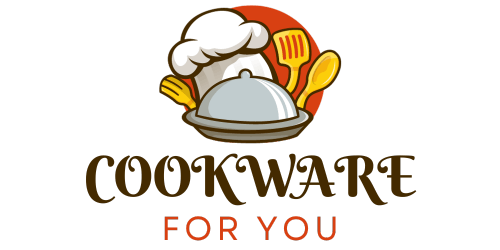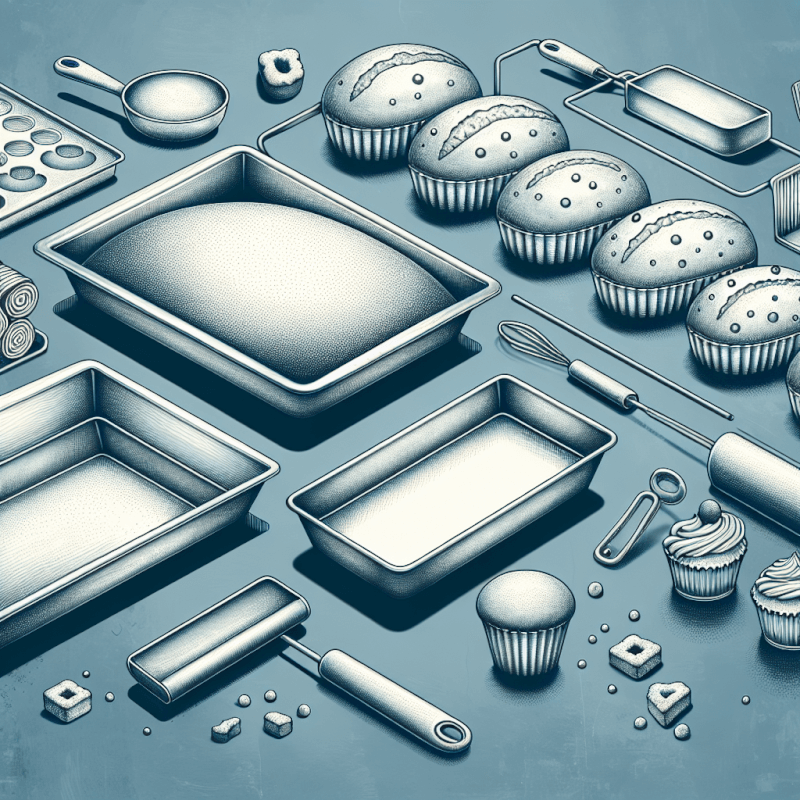Have you ever found yourself in a kitchen, surrounded by a variety of baking tools and gadgets, confused about the specific purpose of each one? Fear not, for we have a simple and friendly guide to help you navigate through the vast world of bakeware. From cake pans to cookie sheets, understanding the definition of each type of bakeware will not only make your baking experience more enjoyable but also elevate your culinary skills to new heights. So grab your apron and let’s embark on this delectable journey together!
Bakeware Definition
Bakeware refers to a variety of kitchen utensils and tools that are used specifically for baking purposes. Whether you’re a professional baker or just someone who enjoys baking at home, having the right bakeware can make a significant difference in the outcome of your baked goods. From cakes and cookies to bread and pastries, bakeware plays a crucial role in creating delicious treats for yourself and your loved ones.

What is Bakeware?
Bakeware encompasses a wide range of items that are designed to withstand high temperatures and provide optimal cooking or baking conditions. It includes essentials such as baking trays, cake pans, muffin tins, loaf pans, and cookie sheets. These pieces of equipment are typically made from various materials like metal, glass, silicone, or ceramic, each with its unique characteristics and uses.
Types of Bakeware
There are various types of bakeware available, each serving a specific purpose in the baking process. Let’s explore some of the most commonly used types:
Baking Trays: Baking trays, also known as baking sheets or cookie sheets, are flat rectangular or square pans with raised edges. They are ideal for baking cookies, roasting vegetables, or toasting nuts.
Cake Pans: Cake pans come in different shapes and sizes, such as round, square, or rectangular. These pans are specifically designed to create cakes of various sizes and shapes.
Muffin Tins: Muffin tins feature multiple round, cup-like indentations to hold muffin or cupcake batter. They come in different sizes, allowing you to bake varying quantities of muffins or cupcakes in one go.
Loaf Pans: Loaf pans are rectangular-shaped pans, typically used for baking bread, meatloaf, or pound cakes. They provide the perfect shape and structure for these types of baked goods.

Materials Used in Bakeware
Bakeware can be made from various materials, each offering distinct qualities and benefits. Here are some common materials used in bakeware:
Metal: Metal bakeware, such as aluminum or stainless steel, is a popular choice due to its excellent heat conductivity and durability. It ensures even heat distribution, resulting in evenly baked goods.
Glass: Glass bakeware, such as Pyrex, is known for its ability to retain heat and provide a clear view of the baking process. It is also non-reactive, making it safe for acidic ingredients like lemons or tomatoes.
Silicone: Silicone bakeware is flexible and non-stick, making it easy to release baked goods without the need for greasing. It is also microwave and freezer safe, offering versatility in baking and storing.
Ceramic: Ceramic bakeware is aesthetically pleasing and provides even heat distribution. It is ideal for dishes that require prolonged baking or slow cooking, such as casseroles or gratins.
Common Features of Bakeware
Regardless of the type or material, there are some common features found in many bakeware products:
Non-stick Coating: Many bakeware items come with a non-stick coating, which prevents the baked goods from sticking to the surface and allows for easy removal.
Heat Resistance: Bakeware materials are specifically chosen for their ability to withstand high temperatures without warping or cracking, ensuring safe and efficient baking.
Versatility: Most bakeware items can be used for a variety of food preparations, ranging from baking to roasting or broiling. This versatility allows for more diverse cooking options in the kitchen.
Easy Cleaning: Bakeware is generally designed to be dishwasher safe or easy to clean by hand. Non-stick coatings or materials like silicone often require minimal effort to remove any residue.

Advantages of Using Bakeware
Using bakeware in your baking endeavors offers numerous advantages:
Even Heat Distribution: Bakeware made from materials like metal or glass provides even heat distribution throughout the baking process, ensuring that your baked goods are cooked uniformly.
Easy Release: Non-stick coatings or silicone materials allow for easy release of baked goods, preventing them from sticking to the pan and causing frustration during the removal process.
Versatility: Bakeware items can often be utilized beyond their specific purpose. For example, a baking tray can double as a roasting pan. This versatility allows for more efficient use of kitchen space and resources.
Durability: High-quality bakeware, made from sturdy materials, is built to last. Investing in durable bakeware means you won’t have to replace them frequently, saving you both money and the hassle of constantly purchasing new products.
Disadvantages of Using Bakeware
While bakeware offers a plethora of advantages, it also comes with a few disadvantages that should be considered:
Price: High-quality bakeware can be more expensive compared to lower-quality options. However, investing in durable and reliable bakeware can prove to be more cost-effective in the long run.
Storage Space: Bakeware items, especially those with intricate shapes or sizes, may require ample storage space in your kitchen cabinets or drawers. It’s essential to plan your storage options accordingly.
Maintenance: Some bakeware, particularly those with non-stick coatings, requires specific care to maintain their performance and lifespan. Proper cleaning, avoiding sharp utensils, and appropriate storage are crucial for longevity.

Choosing the Right Bakeware
When selecting bakeware, there are a few key considerations to keep in mind:
Purpose: Identify the specific task or dish you intend to bake, and choose the appropriate bakeware accordingly. Whether it’s a cake, loaf, or cookies, selecting the right pan ensures optimal results.
Material: Consider the material of the bakeware and its characteristics. Does it offer even heat distribution? Is it non-stick? Will it react with certain ingredients? These factors influence the outcome of your baked goods.
Quality: Invest in high-quality bakeware to ensure durability and longevity. Well-made products with solid construction tend to last longer and provide consistent baking performance.
Size and Shape: Consider the size and shape of the bakeware to accommodate the quantity or the desired presentation of your baked goods. Ensure the bakeware fits in your oven and storage space as well.
How to Care for Bakeware
Proper care and maintenance of your bakeware are essential to prolong its lifespan and retain its performance:
Cleaning: Follow the manufacturer’s instructions for cleaning your bakeware. Most bakeware is dishwasher safe, but handwashing is generally recommended for non-stick coated items to avoid damaging the surface.
Avoid Abrasive Cleaners: Use mild dishwashing soap and a non-abrasive sponge to clean your bakeware. Avoid using harsh cleaners or metallic scrubbers that can scratch or damage the surface.
Silicone Care: If using silicone bakeware, ensure it has cooled down before cleaning. Wash it with warm, soapy water or place it in the dishwasher if it’s dishwasher safe. Avoid sharp objects that may puncture or tear the silicone material.
Storage: Allow your bakeware to thoroughly dry before storage to prevent any moisture buildup. Stack or store bakeware items carefully, ensuring they don’t scratch or damage each other.

Popular Brands of Bakeware
Several reputable brands offer high-quality bakeware options to choose from, including:
Nordic Ware: Known for their innovative designs and durability, Nordic Ware offers a wide range of bakeware, including Bundt pans, baking sheets, and specialty molds.
Wilton: Wilton is recognized for its vast array of baking tools and bakeware, ranging from cake pans and cookie sheets to decorating supplies and specialty baking pans.
Pyrex: Pyrex is a trusted name in glass bakeware, offering durable and heat-resistant options. Their glass baking dishes and measuring cups are a staple in many kitchens.
Calphalon: Calphalon offers a variety of metal bakeware, known for its exceptional heat distribution and durability. Their baking pans and sheets are often praised for their performance.
Conclusion
Bakeware is an essential component of every baker’s arsenal. From cookies and cakes to bread and pastries, having the right bakeware ensures that your baked goods come out perfectly every time. Whether you opt for metal, glass, silicone, or ceramic bakeware, selecting high-quality products and caring for them properly will enable you to enjoy the many benefits of baking with ease. So, go ahead, explore the diverse world of bakeware, and let your creativity soar in the kitchen!


